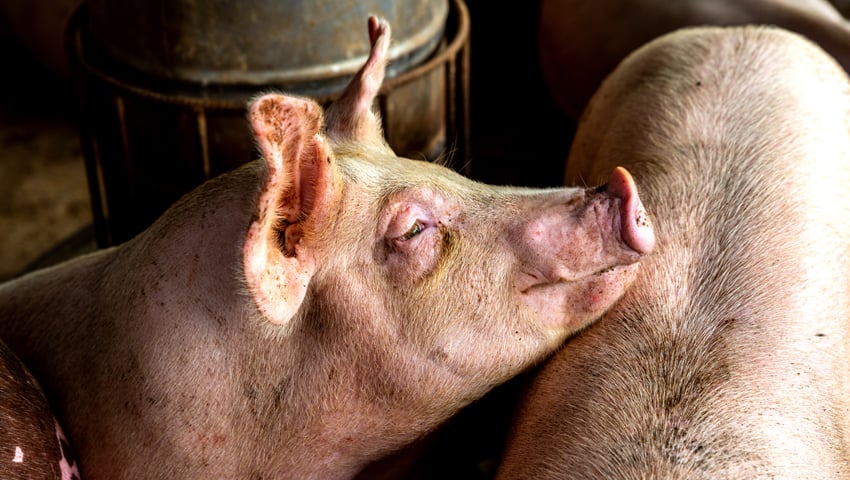A EUROBAROMETER survey shows that a large majority of Europeans (84%) believe that the welfare of farmed animals should be better protected in their country than it is now.
The European Commission has released a statement that says that it has been acting to improve animal welfare for over 40 years, progressively improving the lives of animals and adopting welfare standards in legislation that are amongst some of the highest in the world. This survey shows the importance of this topic for citizens across the EU.
84% of EU citizens believe that their governments must do more to protect farmed animals. A similar number (83%) support limiting the transport time of animals. Almost three quarters of respondents (74%) support better protection of the welfare of pet animals in their country.
Over 90% of Europeans consider that farming and breeding practices should meet basic ethical requirements. These include offering animals enough space, sufficient food and water, environments adapted to their needs (mud, straw etc), and ensuring proper handling. The survey also showed a high level of concern for the welfare of animals in slaughterhouses.
Three quarters of respondents found the practice of killing male baby chicks after birth to be unacceptable, while an overwhelming majority favoured a ban on cutting certain body parts of animals (tails, ears, beaks etc.) unless strictly necessary and with anaesthesia. On fur farming, over half of those surveyed (57%) consider that it should be strictly banned in the EU, while close to a third (32%) think it should only be maintained under improved welfare conditions.
When it comes to food imports from non-EU countries, over eight in ten Europeans (84%) believe that the current animal welfare situation should change, either by applying EU animal welfare rules to food imports or by labelling food according to the standards applied.
Despite the interviews being carried out in March 2023, when food prices were already very high due to inflation, 60% of the respondents indicated that they would be willing to pay more for products sourced from animal welfare-friendly farming systems. Around a quarter (26%) would be ready to pay up to 5% more for animal-welfare friendly food.
Stella Kyriakides, Commissioner for Health and Food Safety, said, “Europe has proudly championed some of the highest animal welfare standards in the world for over 40 years, and this work remains a priority for us. Better animal welfare means better animal health and better-quality food. This is why we are working to upgrade EU animal welfare rules, in line with the latest scientific evidence and in a way that works for farmers and the livestock sector. We will continue to push for the highest possible standards – in the EU and internationally – while ensuring that no one is left behind.”
Background
The Special Eurobarometer (533) was conducted between 2 and 26 March 2023. A total of 26,376 respondents, from the 27 EU Member States and from different social and demographic groups, were interviewed. The methodology used was face-to-face interviews in people’s homes or on their doorstep, in the national language, except for Malta, Czechia, Denmark and Finland, where some interviews were conducted using Computer Assisted Video Interview.
The Farm to Fork Strategy, which is at the heart of the European Green Deal, aims to make food systems fair, healthy and environmentally friendly. Improving EU animal welfare standards is an important part of this Strategy. The Commission has been working intensively on a revision of the EU’s animal welfare legislation, in a way which takes on board the needs of all stakeholders of the supply chain. The proposal on the protection of animals during transport, one of the four legs of the legislation, is the most advanced and will be presented in December 2023.
In 2021, the Commission also responded positively to the European Citizen’s Initiative “End the Cage Age”, which was led by Eurogroup for Animals. This initiative called for the prohibition of the use of cages for the farming of several species of animals in intensive farming systems.
